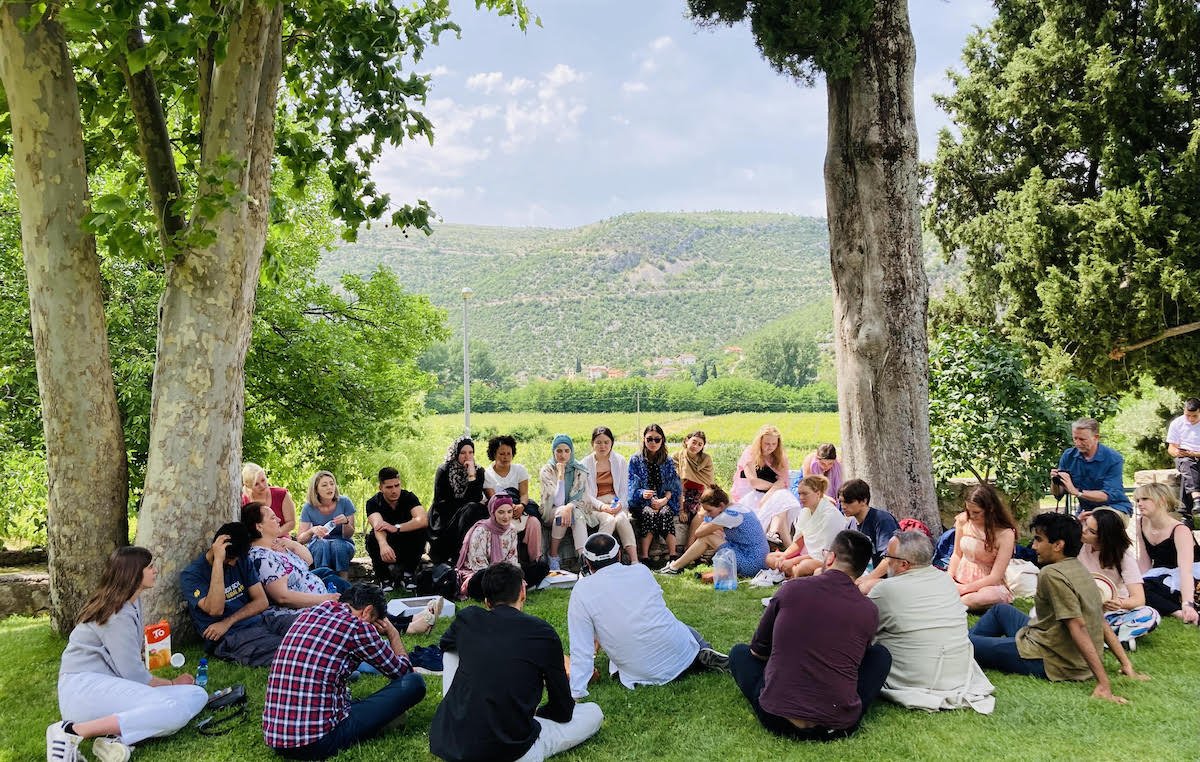LATEST POSTS
Finding Hope Amid the Horrors of Violence: Lessons from Sarajevo
I applied to Notre Dame’s faculty-led trip to Bosnia and Herzegovina this summer because I wanted to learn more about a part of Europe that is often left out of history books and course syllabi. I wanted to educate myself on the rich history of the country, and the current situation in regards to peacebuilding. This trip did help me accomplish those goals, but the most impactful part of the journey was actually a conversation about my own country.
Religion, Identity, and Peace: Learning Through Cultural Immersion in Bosnia and Herzegovina
During our May student trip to Sarajevo, Amra, one of our discussion facilitators, laughed, cigarette dangling from her lips, as she likened the city to a femme fatale—alluring, but with a dark side. It was, we soon learned, an apt description for a lovely and complicated city, one that has been simultaneously strengthened and scarred by its history.
How I Learned to Appreciate Religion’s Role in Building Peace
Bosnia and Herzegovina is not a place I had ever pictured myself visiting. But thanks to a student trip made possible by the University of Notre Dame and Peace Catalyst International, I recently visited the country—not as a tourist, but as a student of peacebuilding who gained a new appreciation for the role of religion in peace processes and reconciliation.
Why Your Church Should Start Training for Peacebuilding Now
Although it’s best to train for peacebuilding before conflict arrives, conflicts are already present in our personal lives, churches, and society. The time to begin training for peacebuilding is now. It’s time to get started centering peace-oriented theology and peacebuilding skills training in our churches and Christian formation so that we can learn to partner as peacebuilders to bless and heal our communities.
Where Do Peace and Justice Meet? Reflections on Peacemaking in Israel-Palestine
How can peacemaking be the thing that leads to justice, and vice versa? From a Jesus-following perspective, we can see how the methods of creativity and nonviolence that Jesus used not only disarmed the oppressors of His time and perhaps convicted them of their wrongdoing, but also gave a sense of freedom and dignity to the person being mistreated. There's something different about creative nonviolence in the ways of Jesus - it's not just about freeing the oppressed; it's also about freeing the oppressor.
Notre Dame Bosnia Trip Reflection: “Religion, Identity, and Peace at the Periphery of Europe”
Notre Dame professor Dr. Mahan Mirza and Peace Catalyst President Martin Brooks just returned from a trip to Bosnia & Herzegovina (BiH) with 14 Notre Dame students and 11 Bosnian university students. The students learned from numerous local Bosnian peacebuilders and social scientists about Bosnia and Herzegovina’s rich history of peacebuilding, competing ethno-religious narratives, trauma and cycles of conflict, and issues of identity. These are some of our highlights and takeaways.
Connecting in Conflict: NEW Skills Training Course
Want more practical skills for dealing with conflict in everyday situations? Join us for this online course!
What Does Housing Have to do with Peacebuilding?
How does economic disparity, public education, and homelessness connect to shalom? I have begun to learn that they are not only connected but actually inseparable.
Registration Open: September 1-10, 2022 Catalyze Peacebuilding Pilgrimage
For the first time since the beginning of the Covid-19 pandemic, we are very excited to announce that our registration is open for individuals and small groups to come to Bosnia & Herzegovina on our fall 2022 Catalyze Peacebuilding Pilgrimage.









